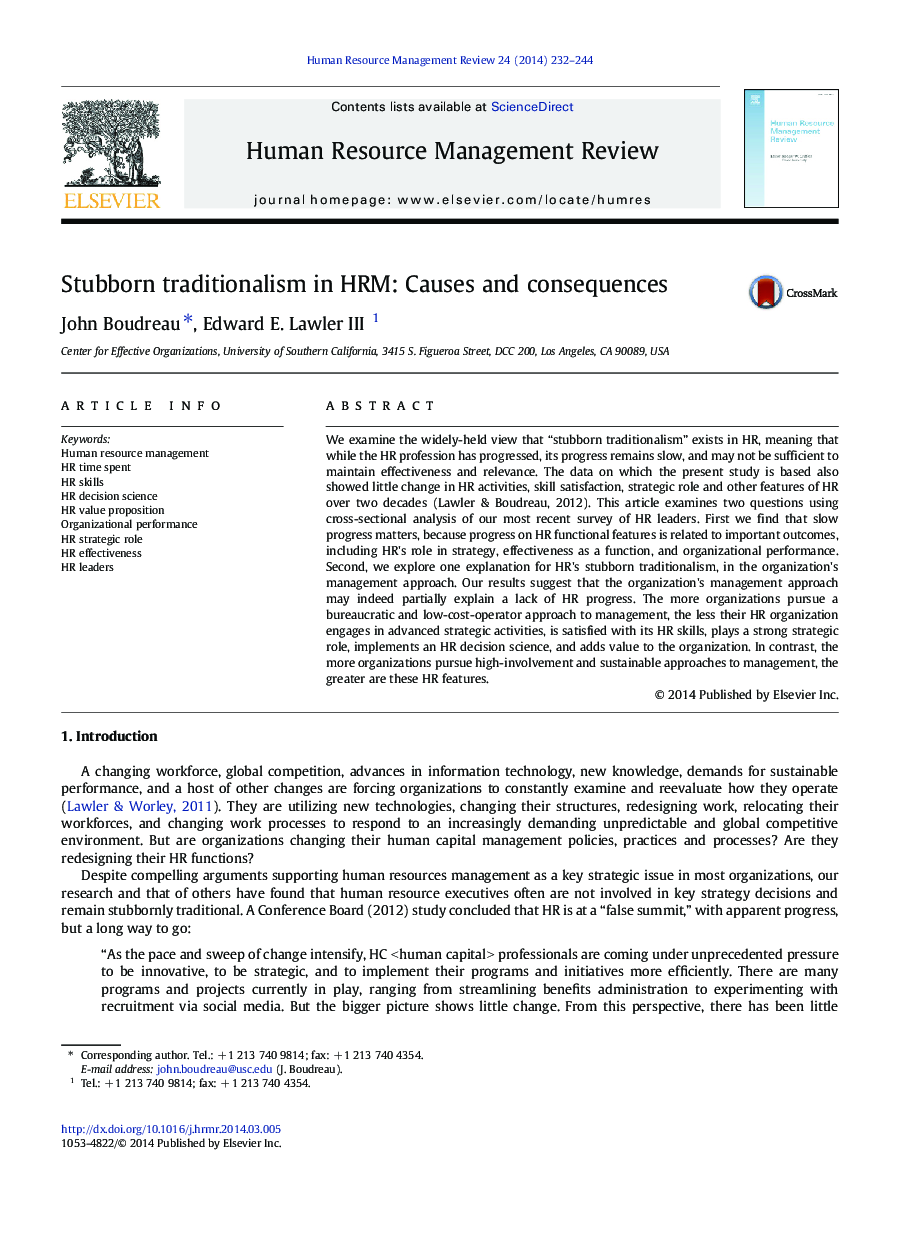| Article ID | Journal | Published Year | Pages | File Type |
|---|---|---|---|---|
| 879622 | Human Resource Management Review | 2014 | 13 Pages |
We examine the widely-held view that “stubborn traditionalism” exists in HR, meaning that while the HR profession has progressed, its progress remains slow, and may not be sufficient to maintain effectiveness and relevance. The data on which the present study is based also showed little change in HR activities, skill satisfaction, strategic role and other features of HR over two decades (Lawler & Boudreau, 2012). This article examines two questions using cross-sectional analysis of our most recent survey of HR leaders. First we find that slow progress matters, because progress on HR functional features is related to important outcomes, including HR's role in strategy, effectiveness as a function, and organizational performance. Second, we explore one explanation for HR's stubborn traditionalism, in the organization's management approach. Our results suggest that the organization's management approach may indeed partially explain a lack of HR progress. The more organizations pursue a bureaucratic and low-cost-operator approach to management, the less their HR organization engages in advanced strategic activities, is satisfied with its HR skills, plays a strong strategic role, implements an HR decision science, and adds value to the organization. In contrast, the more organizations pursue high-involvement and sustainable approaches to management, the greater are these HR features.
